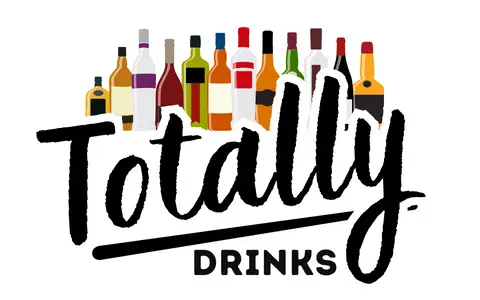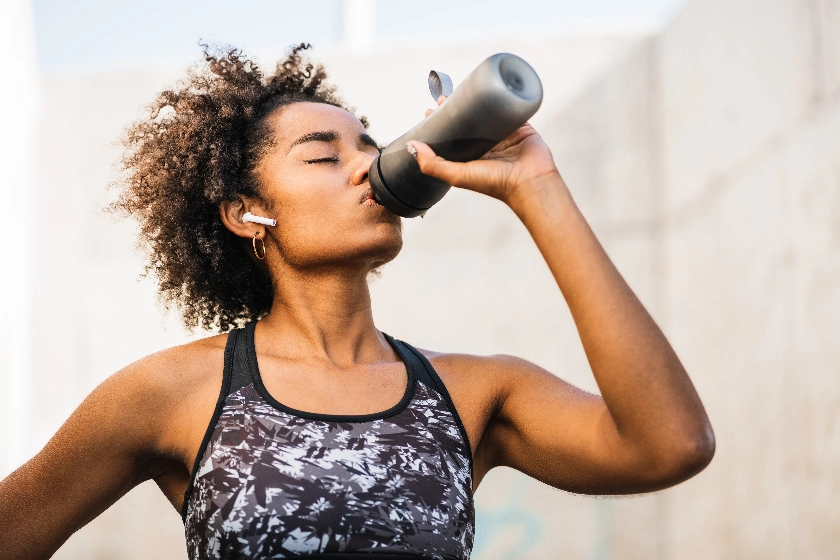
There’s nothing so delicious as a cold glass of water when you’ve been working out, hiking, jogging, or just sitting in the sun. Have you ever noticed how that first gulp is always perfection – the most delicious sip you’ve ever taken? Why does water taste good when you’re thirsty?
Water tastes good when you’re thirsty because your brain rewards you for quenching your thirst by producing “happy” chemicals which you attribute to the water’s taste. Drinking water hydrates your body, removes the symptoms of thirst, and stimulates your taste buds, making it taste good.
Our bodies signal to us when they need something – if you’re tired, you need sleep; if you’re hungry, you need food; and if you’re thirsty, you need water. Your body’s response to fulfilling these needs is complex and influences how food or water tastes. Let’s look at why water tastes blissful when you’re thirsty.
Why Does Water Taste Best When You’re Thirsty?
Thirst is a sensation that your body experiences when it is dehydrated. Satisfying this urge influences how you experience the taste of the water – and there’s a scientific reason.
Scientists who have studied the human brain tell us that quenching thirst means more than rehydrating the body. Brain scans of thirsty people drinking water show that the section responsible for emotional decision-making lights up.
This sector of the brain produces dopamine and releases these happy hormones to give you positive feedback and reward you for your response to thirst.
The water does not taste different, but the dopamine makes you feel pleasure, and you associate that pleasure with the first drink of water.
Once you’re no longer thirsty, the water doesn’t taste good anymore. The emotional part of your brain is no longer being stimulated and no longer rewards you for drinking water.
This process probably evolved so that people would respond to the thirst urge but not drink too much water. Over-hydration can result in dangerously low sodium levels in the blood, a condition called water toxicity.
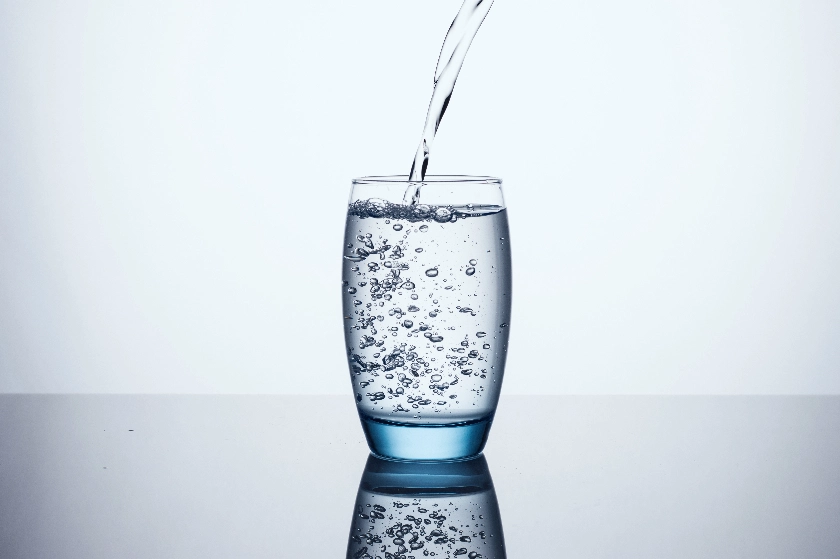
What Happens When You Drink Water When You’re Thirsty?
If that bliss you feel when quenching your thirst is all in the mind, why are we urged to drink a lot of water? Again, science gives us the answer.
Water Hydrates Your Body
Just because hydration makes the water taste good, making you want to guzzle it down, there are other reasons your body needs water.
Thirst shows that your body is dehydrated, meaning there is a lack of water in your body. Your body consists of between 45 and 65% water, with most of that making up blood. (Blood is 90% water.)
Dehydration upsets the salt balance in the blood, making your blood more concentrated and slower moving. Immediately, your brain gets a signal. The brain then messages the rest of the body, producing symptoms like a dry mouth, a rough throat, and the desire for water.
Usually, this is when you’d take a drink of water and experience water as the nectar of the gods.
However, drinking water throughout the day is essential because thirst only appears once the body is already slightly dehydrated. A lack of water may affect your body and mind’s performance.
If you don’t start drinking water, other symptoms appear: dry, sunken eyes, irritability, headache, dizziness, muscle cramps, and even fever. At this stage, your body is so dehydrated that it will need an IV drip, not just a drink of water.
Dehydration can kill you – humans call only live for three days without any water.
Keeping your body dehydrated is essential for effective functioning. Whether sitting at work all day or working out in the sun, you need to stay hydrated.
Water Rehydrates Your Mouth
Water can also taste more delicious when you’re thirsty because it eases a dry mouth.
A dry mouth is a symptom of thirst, with your saliva drying up and your mouth tasting unpleasant.
Drinking water washes away the bad taste and stimulates your saliva to continue rinsing your mouth.
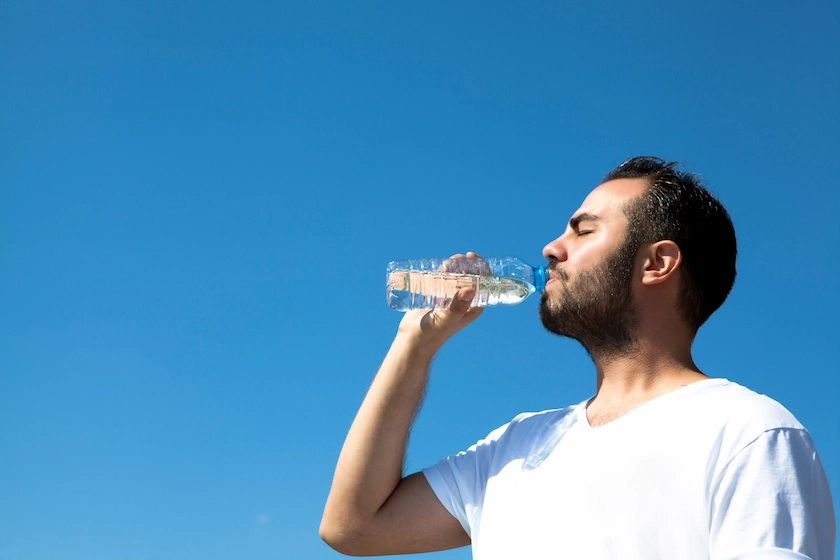
Why Does Water Taste Good Even Though It Has No Taste?
Distilled water is the only pure water, containing no minerals or trace elements. It has no flavor at all. However, our bodies can trick us into thinking that water has a strong flavor.
Water Awakens Your Taste Buds
Because most water has no flavor, it can’t stimulate your taste buds.
However, you become used to the taste of your saliva, which is usually slightly salty, becoming more so when you’re thirsty.
When you take a drink of water, it rinses away the saltiness, so your taste buds react by signaling that the water is sweet.
Water Contains Trace Elements
People seldom drink distilled water – it has industrial and mechanical uses. Most water we drink contains minerals, which your taste receptors can sometimes detect.
Spring and mineral water will have characteristic flavors because of the minerals it contains, depending on the rock or soil it has flowed over. If you look at a bottle of water, it will show a score for “parts per million” (ppm). This number indicates how much of a mineral there is, for example, calcium, potassium, magnesium, and phosphorus.
Water that originates near a volcano is often alkaline because of the volcanic rocks. In contrast, well water is often described as sweet.
In contrast, water plumbed into our kitchen faucets may have a flavor because of the added fluoride. The material that plumbing pipes are made of, such as copper, is also detectable in water.
Water also allows carbon dioxide to dissolve in it when it’s left to sit out. That’s why that glass of water left out on your bedside table tastes different than fresh water.
Cold Water Suppresses Your Taste Buds
If water tastes good when you’re thirsty, think about how good cold water tastes. Again, there’s a scientific reason.
Cold water suppresses the taste receptors, stopping them from tasting any flavor the water might have.
You, therefore, experience the water as clear and refreshing. I wrote a whole post on why cold drinks taste better, especially alcohol.
Your body also reacts positively to cold water as it lowers your temperature, which is vital if you’ve got a fever, overheated, or warmed up working out.

How To Make Water Taste Better
We all know that we need to stay hydrated by drinking more water. But drinking plain water can be tedious, as it has little taste, so you reach for another cappuccino or a frosty glass of soda. Let’s see how you can make water taste better so you’ll drink it all day.
- Add ice cubes. Cold water tastes better to us than warm water.
- Toss in some fruit. Pop chopped strawberries, lemon, or peaches into the water and let it steep, adding flavor but not sugar.
- Make it zesty. Fresh ginger, celery, and cucumber give your water a more exciting flavor, especially if you don’t have a sweet tooth.
- Carbonate it. Sparkling fizzy water or seltzer is more interesting to drink, as it has a fun mouthfeel that reminds you of champagne.
- Brew a teabag. Drinking tea without milk or sugar is as healthy as drinking water. Try herbal teas like chamomile, mint, or fennel, or enjoy a lemony green tea.
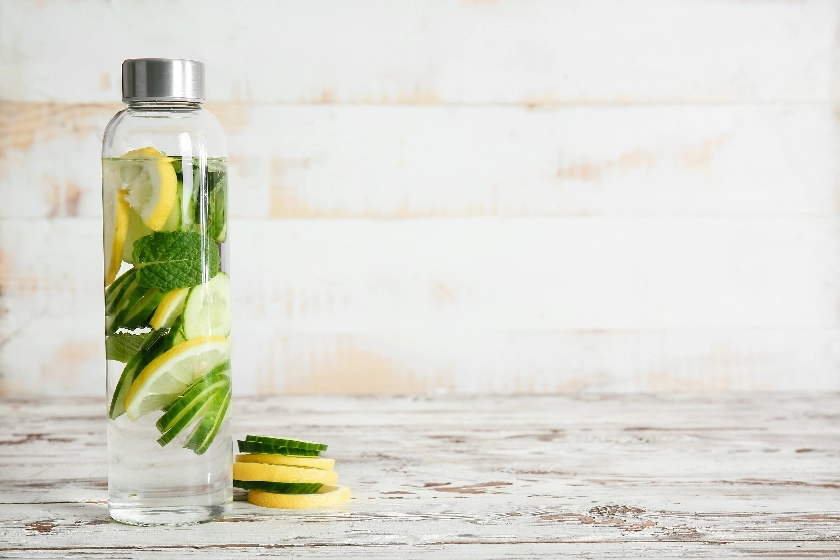
Conclusion
We’ve all noticed that water tastes very good when we’re thirsty. The same water can taste completely neutral at other times. Science tells us that the water doesn’t taste different but that your body’s response to having thirst quenched stimulates positive hormones.
The good feeling the hormones produce makes you think the water is delicious, but it is all in your brain. Nonetheless, drinking water is vital for hydration and getting rid of a dry, unpleasant-tasting mouth.
